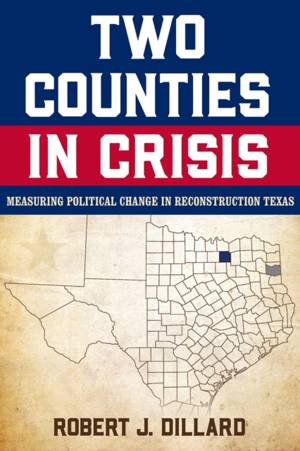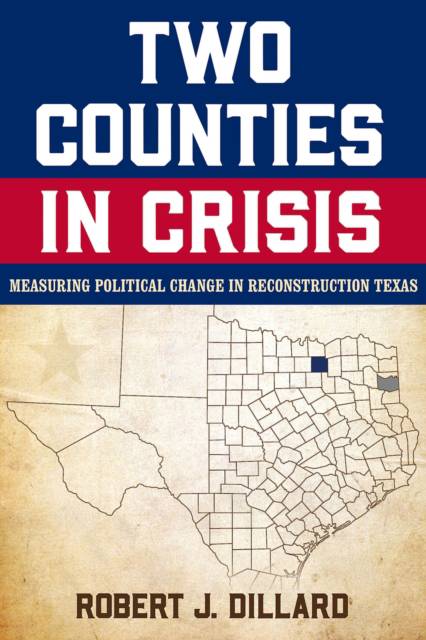
- Afhalen na 1 uur in een winkel met voorraad
- Gratis thuislevering in België vanaf € 30
- Ruim aanbod met 7 miljoen producten
- Afhalen na 1 uur in een winkel met voorraad
- Gratis thuislevering in België vanaf € 30
- Ruim aanbod met 7 miljoen producten
Zoeken
€ 53,45
+ 106 punten
Omschrijving
Two Counties in Crisis offers a rare opportunity to observe how local political cultures are transformed by state and national events. Utilizing an interdisciplinary fusion of history and political science, Robert J. Dillard analyzes two disparate Texas counties--traditionalist Harrison County and individualist Collin County--and examines four Reconstruction governors (Hamilton, Throckmorton, Pease, Davis) to aid the narrative and provide additional cultural context.
Commercially prosperous and built on slave labor in the mold of Deep South plantation culture, East Texas's Harrison County strongly supported secession in 1861. West Texas's Collin County, characterized by individual and family farms with a limited slave population, favored the Union. During Reconstruction, Collin County became increasingly conservative and eventually bore a great resemblance to Harrison County. By 1876 and the ratification of the regressive Texas Constitution, Collin County had become firmly resistant to all aspects of Reconstruction.
Commercially prosperous and built on slave labor in the mold of Deep South plantation culture, East Texas's Harrison County strongly supported secession in 1861. West Texas's Collin County, characterized by individual and family farms with a limited slave population, favored the Union. During Reconstruction, Collin County became increasingly conservative and eventually bore a great resemblance to Harrison County. By 1876 and the ratification of the regressive Texas Constitution, Collin County had become firmly resistant to all aspects of Reconstruction.
Specificaties
Betrokkenen
- Auteur(s):
- Uitgeverij:
Inhoud
- Aantal bladzijden:
- 256
- Taal:
- Engels
- Reeks:
Eigenschappen
- Productcode (EAN):
- 9781574419078
- Verschijningsdatum:
- 27/09/2023
- Uitvoering:
- Hardcover
- Formaat:
- Genaaid
- Afmetingen:
- 150 mm x 232 mm
- Gewicht:
- 589 g

Alleen bij Standaard Boekhandel
+ 106 punten op je klantenkaart van Standaard Boekhandel
Beoordelingen
We publiceren alleen reviews die voldoen aan de voorwaarden voor reviews. Bekijk onze voorwaarden voor reviews.











